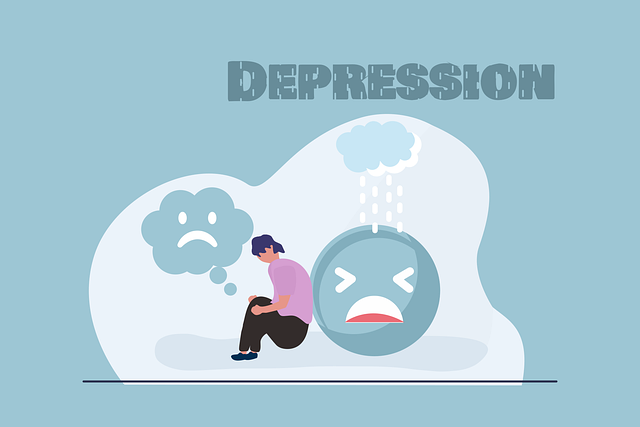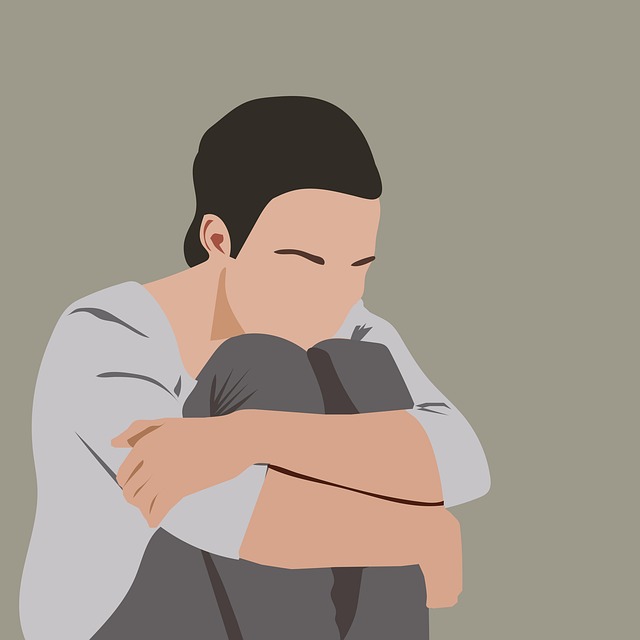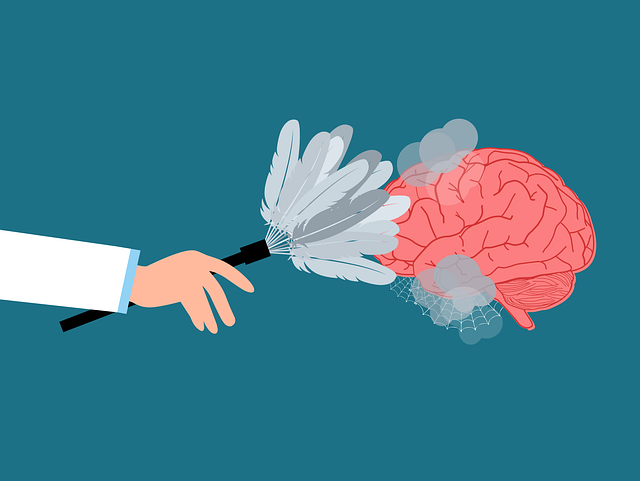Lakewood Exposure and Response Prevention (E&RP) Therapy is a powerful tool for managing anxiety disorders, offering individuals a safe space to confront fears through guided exposure and coping strategy development. In mental wellness support groups, facilitators act as cornerstones, using techniques like active listening and Lakewood E&RP to foster empathy and build supportive communities. Creating nurturing environments with clear boundaries, structured agendas, and regular check-ins ensures participants feel valued and empowered to support one another's mental wellness journeys. Public awareness campaigns further emphasize the importance of early intervention, promoting positive behaviors and emotional regulation for improved mental health outcomes.
Mental wellness group facilitation is an increasingly vital area of support, especially in modern times. This article explores powerful techniques, focusing on Lakewood Exposure and Response Prevention (E&RP) Therapy, a game-changer in treating anxiety disorders. We’ll delve into the role of facilitators in fostering safe spaces and guiding members through exposure therapy. Additionally, we’ll uncover strategies for creating inclusive environments, encouraging coping skills, and promoting behavioral activation within group settings, all essential components for effective mental wellness support.
- Understanding Lakewood Exposure and Response Prevention (E&RP) Therapy
- Role of a Group Facilitator in Mental Wellness Support
- Creating a Safe and Inclusive Group Environment
- Techniques for Guided Exposition in Group Settings
- Encouraging Coping Skills and Behavioral Activation
Understanding Lakewood Exposure and Response Prevention (E&RP) Therapy

Lakewood Exposure and Response Prevention (E&RP) Therapy is a highly effective approach for treating anxiety disorders by helping individuals confront fears in a safe, controlled environment. This therapy combines exposure therapy with response prevention techniques to reduce avoidance behaviours and anxious responses. Facilitators guide clients through gradual exposure to feared stimuli or situations, teaching them coping skills and strategies to manage their anxiety effectively.
By implementing this method, participants in community outreach program initiatives can learn valuable self-care practices while developing resilience. E&RP Therapy encourages individuals to challenge their negative thoughts and beliefs associated with specific triggers, fostering a sense of control and empowerment over their mental wellness. Through regular practice, clients can enhance their ability to cope with stressors, ultimately improving their overall well-being.
Role of a Group Facilitator in Mental Wellness Support

In mental wellness support groups, the group facilitator plays a pivotal role in creating a safe and supportive environment where individuals can openly discuss their experiences and challenges. They are responsible for guiding the conversations, ensuring that all members feel heard and respected. Facilitators employ various techniques like active listening, prompting thoughtful discussions, and facilitating activities aimed at fostering mental health awareness. By encouraging participants to share their stories and strategies, facilitators help build a sense of community and empathy among group members.
In the context of Lakewood Exposure and Response Prevention Therapy (ERPT), facilitators create structured sessions that focus on gradual exposure to feared situations or thoughts and teach response prevention skills. They assist individuals in challenging and modifying negative thought patterns, promoting healthier coping mechanisms. Through this process, facilitators not only support direct participants but also contribute to the development of public awareness campaigns by sharing valuable insights and strategies for empathy building within the broader community.
Creating a Safe and Inclusive Group Environment

Creating a safe and inclusive group environment is paramount for effective mental wellness facilitation. This starts with establishing clear boundaries and expectations from the outset, ensuring every participant feels respected and valued. Techniques like Lakewood Exposure and Response Prevention Therapy (ERP) can be integrated to foster a non-judgmental space where individuals feel comfortable sharing their experiences and challenges openly. Facilitators should model active listening, empathy, and warmth to build trust within the group.
Promoting social connection and interaction through activities that encourage collaboration and understanding is key. Social Skills Training and Mind Over Matter principles can be woven into these interactions to enhance self-awareness and coping mechanisms. Stress Management Workshops Organization strategies, such as structured agendas and regular check-ins, help maintain a supportive atmosphere. This holistic approach ensures participants not only feel safe but also empowered to support one another throughout their mental wellness journeys.
Techniques for Guided Exposition in Group Settings

Guided exposition is a powerful technique used in group settings to help individuals confront and manage their fears and anxieties. This process involves gradually exposing participants to situations or objects that trigger their distress, while providing them with tools to respond in a controlled manner. In a group environment, facilitators can create a safe space where members support each other through this exposure therapy, fostering a sense of community and shared experience.
The Lakewood Exposure and Response Prevention Therapy (ERPT) is an effective framework for guided exposition. ERPT encourages participants to develop a self-care routine that includes emotional regulation strategies. By learning to manage their responses during these exposures, individuals can improve their overall mental health and well-being. Public awareness campaigns can also be beneficial in promoting understanding of such therapeutic techniques, emphasizing the importance of early intervention and support for better mental health outcomes.
Encouraging Coping Skills and Behavioral Activation

Encouraging coping skills and behavioral activation are essential components of effective mental wellness group facilitation. Through techniques like Lakewood Exposure and Response Prevention Therapy, facilitators can help individuals confront and manage their fears while promoting positive behaviors. This approach not only aids in the emotional regulation but also fosters meaningful engagement with life activities, which is a key aspect of the mental health policy analysis and advocacy. By encouraging participants to gradually face their anxieties and replace maladaptive responses with healthier alternatives, facilitators contribute to the emotional healing processes, ultimately enhancing overall mental wellness.
Behavioral activation strategies are particularly beneficial in energizing individuals who may be experiencing apathy or low motivation. This involves supporting them in identifying and pursuing activities that bring pleasure, purpose, or a sense of accomplishment. By teaching coping skills and promoting behavioral activation, group facilitators empower participants to take charge of their mental health, breaking down barriers that hinder emotional well-being and encouraging long-lasting positive changes.
Mental wellness group facilitation plays a pivotal role in enhancing individuals’ lives through evidence-based practices. Techniques like Lakewood Exposure and Response Prevention (E&RP) Therapy offer effective ways to manage anxiety and phobias, while dedicated facilitators create safe spaces fostering open discussions and personal growth. By implementing guided exposure, encouraging coping skills, and promoting behavioral activation within inclusive group environments, facilitators empower members to overcome challenges and thrive. These strategies, as discussed, provide a comprehensive framework for supportive group dynamics, ultimately improving mental wellness.













